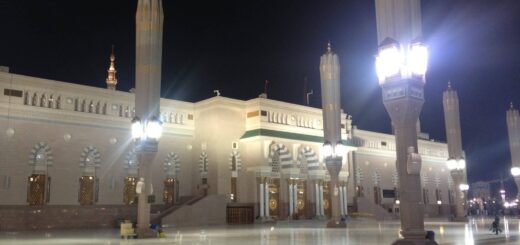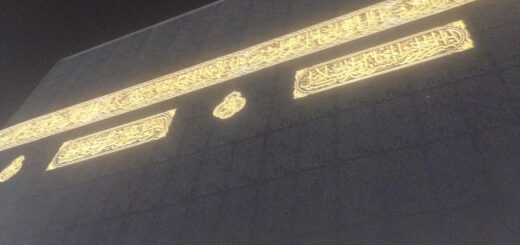Angels

Getting your Trinity Audio player ready...
|
Believing in the angels is one of the central tenets of the Islamic faith, al-‘Imān. Regardless of sect or school of thought, there isn’t any disagreement upon this point. Copious textual evidence establishes this tenet of al-‘Imān beyond all possible doubt. To take the most obvious examples to demonstrate this, the following verses may be cited, where Allah the exalted has expressly stated:
يَا أَيُّهَا الَّذِينَ آمَنُوا آمِنُوا بِاللَّهِ وَرَسُولِهِ وَالْكِتَابِ الَّذِي نَزَّلَ عَلَىٰ رَسُولِهِ وَالْكِتَابِ الَّذِي أَنزَلَ مِن قَبْلُ ۚ وَمَن يَكْفُرْ بِاللَّهِ وَمَلَائِكَتِهِ وَكُتُبِهِ وَرُسُلِهِ وَالْيَوْمِ الْآخِرِ فَقَدْ ضَلَّ ضَلَالًا بَعِيدًا
O you who believe! Believe in Allah and His Apostle and the Book which He has revealed to His Apostle and the Book which He revealed before; and whoever disbelieves in Allah and His angels and His apostles and the last day, he indeed strays off into a remote error. [4: 136]
آمَنَ الرَّسُولُ بِمَا أُنزِلَ إِلَيْهِ مِن رَّبِّهِ وَالْمُؤْمِنُونَ كُلٌّ آمَنَ بِاللَّهِ وَمَلَائِكَتِهِ وَكُتُبِهِ وَرُسُلِهِ لَا نُفَرِّقُ بَيْنَ أَحَدٍ مِّن رُّسُلِهِ وَقَالُوا سَمِعْنَا وَأَطَعْنَا غُفْرَانَكَ رَبَّنَا وَإِلَيْكَ الْمَصِيرُ
The apostle believes in what has been revealed to him from his Lord, and (so do) the believers; they all believe in Allah and His angels and His books and His apostles; We make no difference between any of His apostles; and they say: We hear and obey, our Lord! Thy forgiveness (do we crave), and to Thee is the eventual course [2: 285]
From the Prophetic Sunnah this is reiterated and reinforced, as in the famous ḥadith of Jibreel (Gabriel): ‘He (again) asked: Messenger of Allah, what is al–I’mān? He (the Prophet) replied: That you believe in Allah, his angels, his Books, his messengers, and that you believe in resurrection and that you believe in al-Qadr in its entirety.’ That tradition is well established and widely reported, being cited in all the notable collections like that of Sahīh Bukhāri, Ṣaḥīḥ Muslim, Musnad Aḥmad and many others.
To the casual observer, one may think that this tenet of belief is very straightforward and not controversial. However, for many previous nations, not least the pre-Islamic Arabs, the matter was not straightforward at all. A closer reading of the Qur’ān helps to shed invaluable light upon what the pre-Islamic Arabs believed in relation to the angels. For example, the exalted says:
إِنَّ الَّذِينَ لَا يُؤْمِنُونَ بِالْآخِرَةِ لَيُسَمُّونَ الْمَلَائِكَةَ تَسْمِيَةَ الْأُنثَىٰ
Most surely those who do not believe in the hereafter name the angels with female names [53: 27]
What is the significance of the pre-Islamic Arabs attributing female names to the angels? The answer to that is set out in the next three-verses where Allah the exalted says:
وَجَعَلُوا بَيْنَهُ وَبَيْنَ الْجِنَّةِ نَسَبًا وَلَقَدْ عَلِمَتِ الْجِنَّةُ إِنَّهُمْ لَمُحْضَرُونَ
And they assert a relationship between Him and the jinn; and certainly the jinn do know that they shall surely be brought up; [37:158]
أَفَأَصْفَاكُمْ رَبُّكُم بِالْبَنِينَ وَاتَّخَذَ مِنَ الْمَلَائِكَةِ إِنَاثًا إِنَّكُمْ لَتَقُولُونَ قَوْلًا عَظِيمًا
What! has then your Lord preferred to give you sons, and (for Himself) taken daughters from among the angels? Most surely you utter a grievous saying [40: 17]
وَجَعَلُوا الْمَلَائِكَةَ الَّذِينَ هُمْ عِبَادُ الرَّحْمَٰنِ إِنَاثًا أَشَهِدُوا خَلْقَهُمْ سَتُكْتَبُ شَهَادَتُهُمْ وَيُسْأَلُونَ
And they make the angels– them who are the servants of the merciful — female (divinities). What! did they witness their creation? Their evidence shall be written down and they shall be questioned [43; 19]
Other verses in the Qur’ān also establish this point (see for example at 6: 100/101 and 16: 57/58).
Just as the Christians falsely attributed a son to Allah, the pre-Islamic Arabs attributed daughters to Allah. They claimed that they were the offspring from a union of Allah and the Jinn, thereby having some form of divinity in themselves.
That belief regarding the angels is not unique though to the Arabs. Other pagans held similar beliefs. Writing in Pagans and Christians, Robin Lane Fox refers to an old written relic which was found in the ancient city of Oenoanda, which he argues gives an important insight into the Epicurean conception of the divine. The relic reads:
Self-born, untaught, motherless, unshakable, Giving place to no name, many-named, dwelling in fire, Such is God: we are a portion of God, his angels.
[Robin Lane Fox (2006), Pagans and Christians (London: Penguin Books), p. 169]
Following on from this he argues:
The mention of ‘angels’ raises no problem in a pagan context. Angels occur freely in pagan cults of abstract divinities in Asia Minor; however the tone of this text suggests that it had derived the word from school theology. Platonists used it for the intermediaries between gods and men, while Aelius the orator told how Athena ‘sits by her father and gives orders to the angeloi,’ or lesser gods.
[Robin Lane Fox (2006), Pagans and Christians (London: Penguin Books), p. 170]
Given the above, one can truly appreciate what believing in the angels, as required by faith (al-‘Imān) actually means now:
- To believe in their existence
- That they have been created by Allah
- They are not divine
- and they are certainly not the offspring or the female daughters of Allah
These are the essential points that is required of faith (al-‘Imān). Understanding the functions, essence, number etc. of the angels is not the essential point of belief. If one comes to know additional information concerning the angels, as has been set out in the Qur’ān and the Prophetic Sunnah, then that is accepted in full also. However, the essential points as set out above, are what distinguishes faith (al-‘Imān) from disbelief (kufr).
قُلْ هُوَ اللَّهُ أَحَدٌ، اللَّهُ الصَّمَدُ، لَمْ يَلِدْ وَلَمْ يُولَدْ، وَلَمْ يَكُن لَّهُ كُفُوًا أَحَدٌ
Say: He is Allah, the one, Allah the Eternal Refuge. He neither begets nor is born, nor is there to Him any equivalent [112: 1/4]



